The Second Industrial Revolution and Big Business
1/27
There's no tags or description
Looks like no tags are added yet.
Name | Mastery | Learn | Test | Matching | Spaced |
|---|
No study sessions yet.
28 Terms
Robber Baron
Ruthless businessmen exploiting competition and workers.
Captain of Industry
Innovative leaders contributing to economic growth.
Cornelius Vanderbilt
Railroad magnate, built Grand Central Station.
Standard Time Zone
Established in 1883 for railroad scheduling.
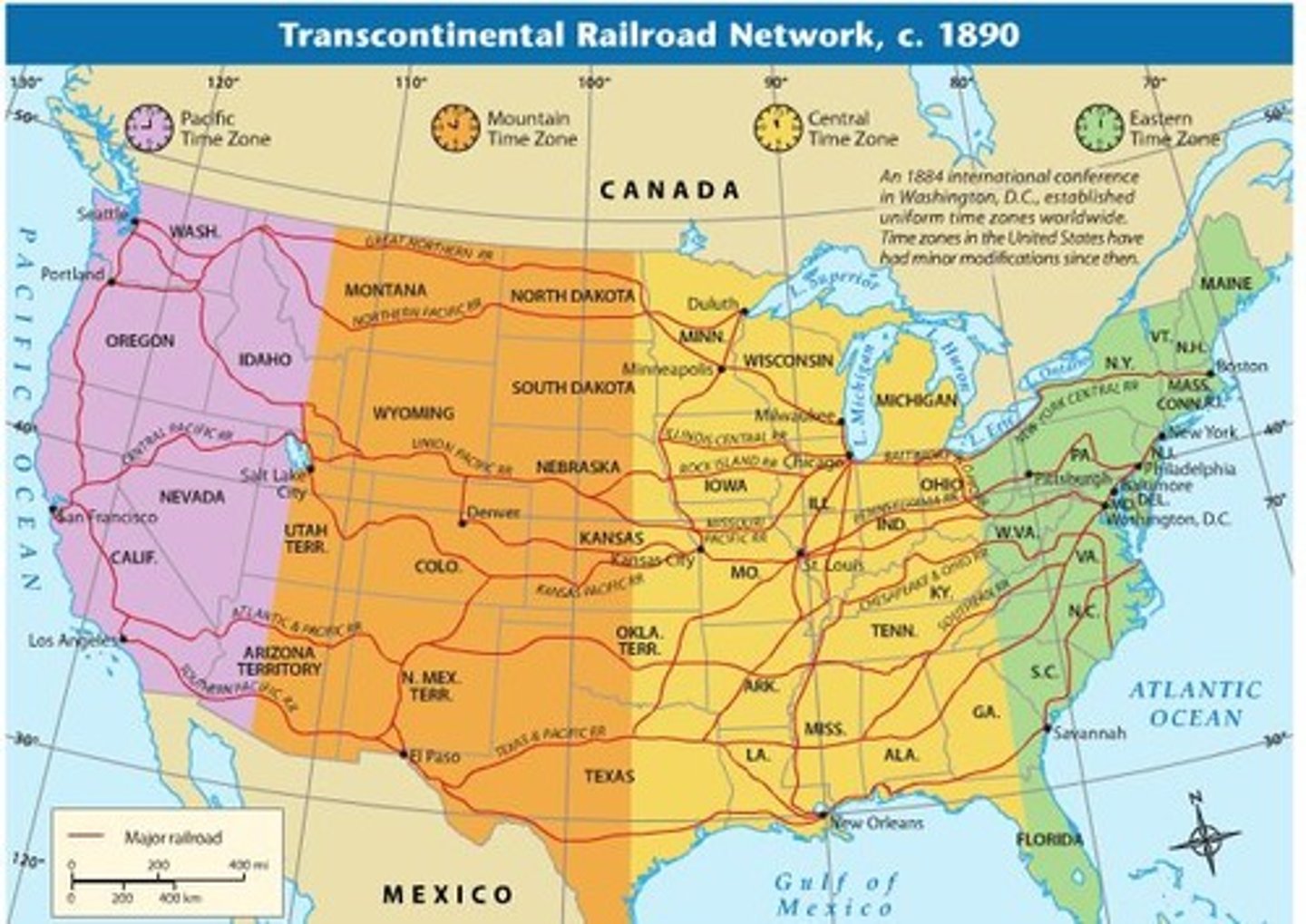
Vertical Integration
Controlling all production stages of an industry.
Horizontal Integration
Buying out competitors to eliminate competition.
John D. Rockefeller
Founder of Standard Oil, controlled oil industry.
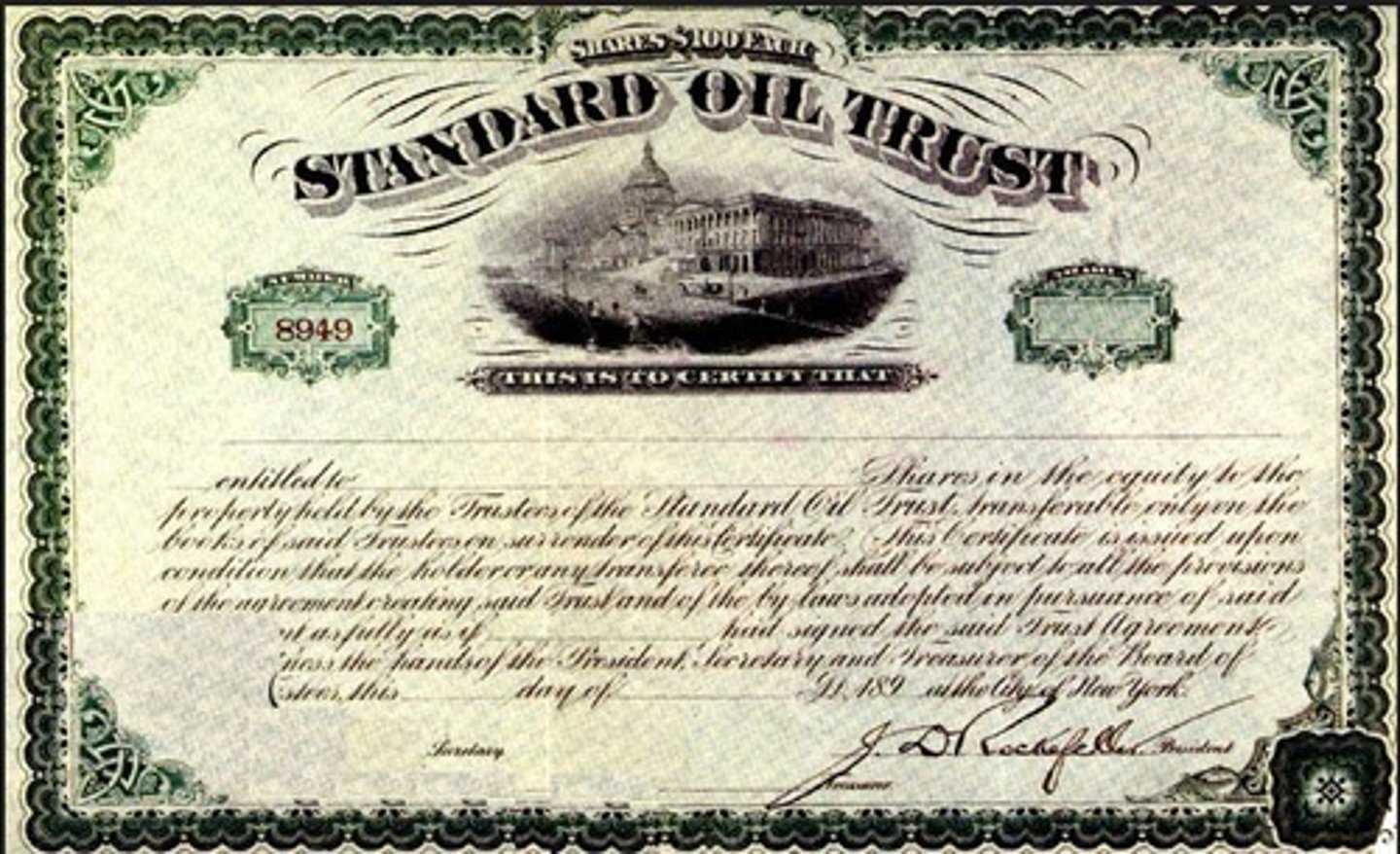
Trust
Companies collaborate to control prices collectively.
Monopoly
Single entity dominates an entire industry.
Bessemer Process
Efficient method for mass-producing steel.
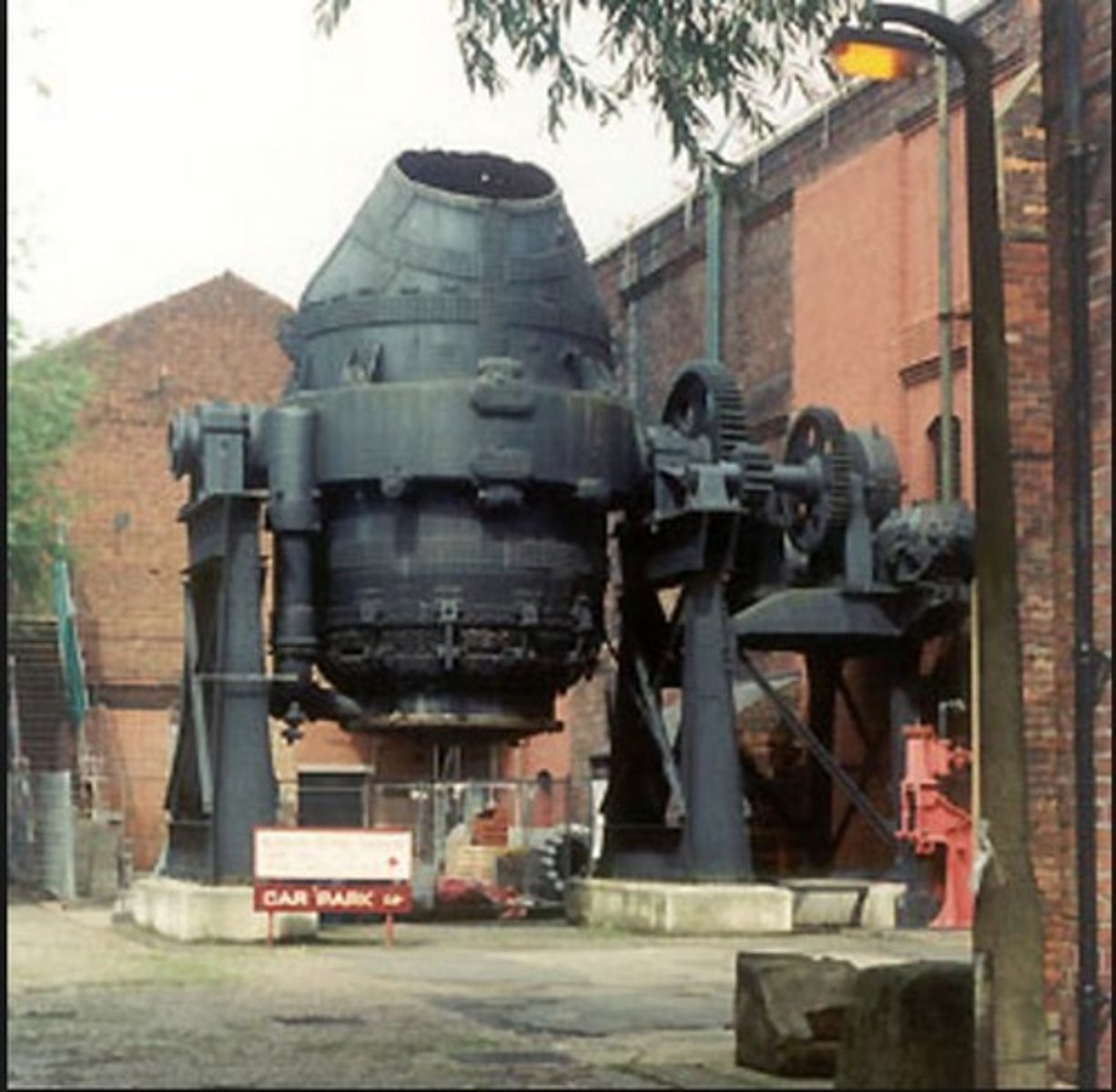
Andrew Carnegie
Steel tycoon, utilized Bessemer Process for success.
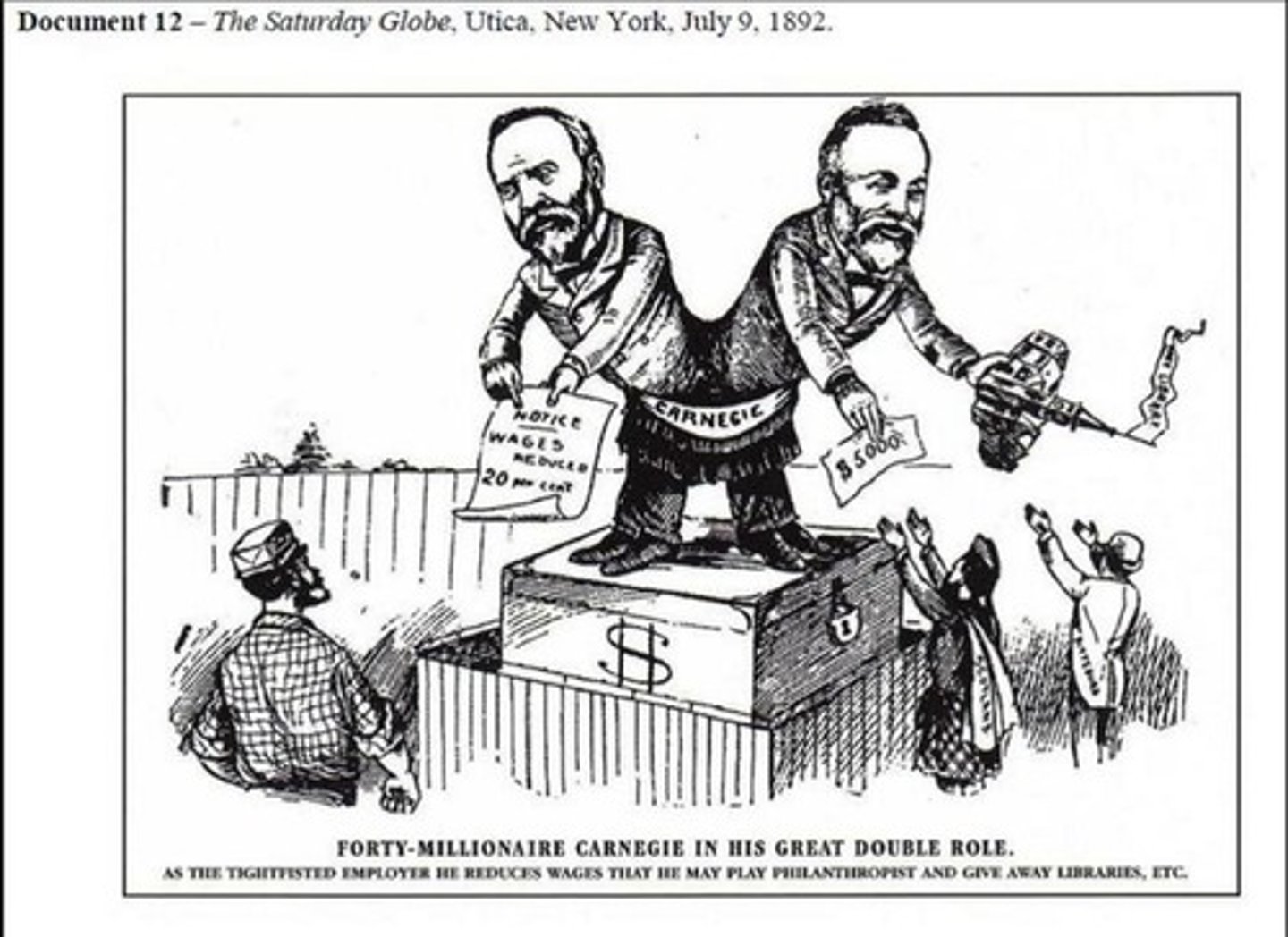
J.P. Morgan
Investment banker, acquired Carnegie Steel, formed U.S. Steel.
James B. Duke
Monopolized cigarette industry with American Tobacco Company.
Charitable Giving: Rockefeller
Donated half his fortune, founded Rockefeller Foundation.
Charitable Giving: Carnegie
Gave wealth to libraries and education, not poor.
Steel Industry
Preferred material due to strength and versatility.
Railroads' Economic Impact
Facilitated faster, cheaper goods transportation across regions.
Oil Industry
Evolved from whale oil to petroleum products.
Kerosene
Popular lighting source by late 1800s.
Grand Central Station
Iconic train station built by Vanderbilt.
Economic Powerhouse
U.S. economy strengthened by industrial leaders.
Social Darwinism
Belief in survival of the fittest in business.
Charitable Philosophy
Wealth should benefit society, not just individuals.
Cleveland Refinery
Key location for oil refining in the U.S.
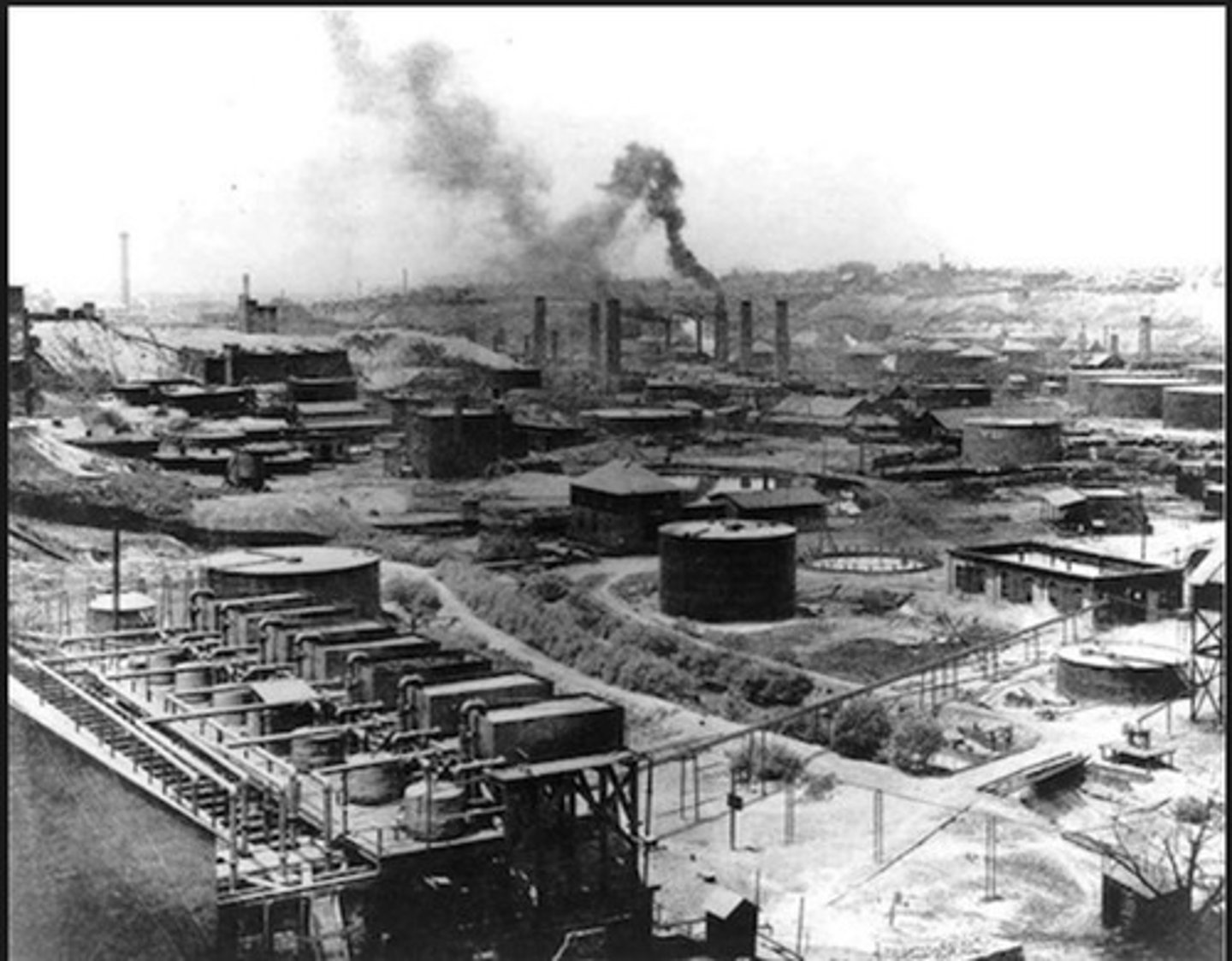
Railroad Expansion
Linked economies of East, North, and Midwest.
Steel Demand
Railroads increased need for steel production.
American Dream
Aspiration for wealth and success through hard work.
Civil War Investments
Vanderbilt invested in railroads during the Civil War.